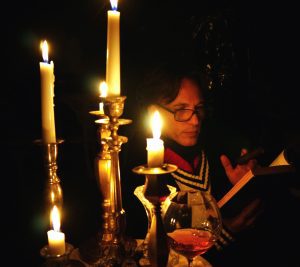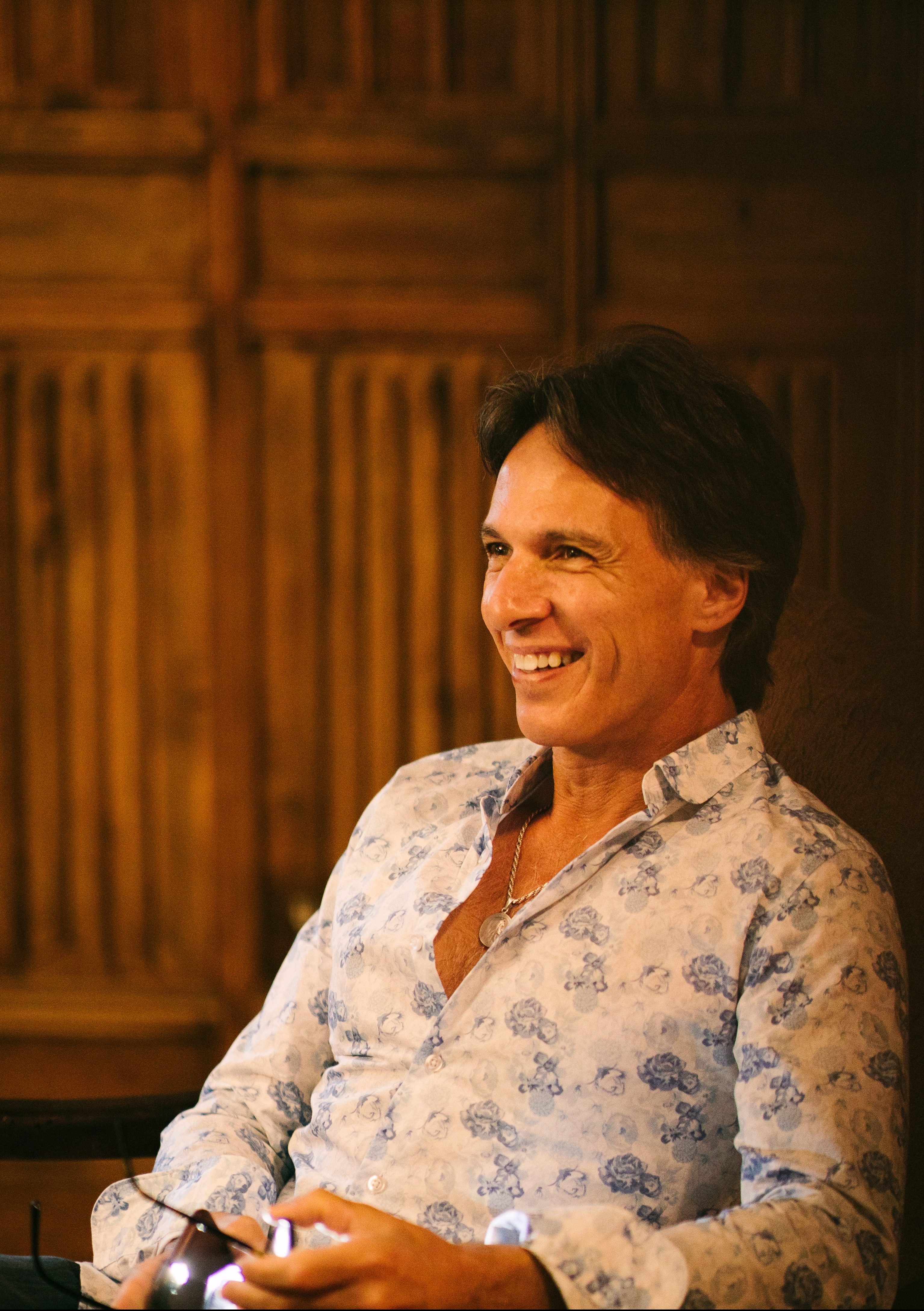
Recently, I was attending a lecture on the origins of Hermetics when a gentlemen in the audience raised his hand and asked the speaker on what authority he spoke. He specifically wanted to know the instructors credentials and if he had earned a degree.
This got me thinking. At first it seemed like an important question, but as I gave it further thought I realized it did not hold as much weight as one would initially think. I wanted to stand up and say, “Sir, don’t you know that when we relate to an individual’s work through the prism of their credentials we are peering through a fragmented lens?”
Of course I didn’t say that; I wasn’t there to speak. I was there to listen.
But instead, I began to recall a quantum physics lecture I attended many years ago on the significance of our vibratory rate. It revealed that everything vibrates, and by everything I mean everything. The essence of everything we experience in our physical reality is vibrational, including knowledge. It is important to understand that our vibratory rate has a direct influence on our perception of reality. Meaning, we are only capable of perceiving and grasping that with which we are vibrationally aligned.
The key to accessing higher knowledge is found in our ability to vibrationally align our thoughts and emotions with such knowledge and then translate it into our physical reality. We do this in every waking moment of our lives through the use of our senses. So in essence we are all vibration translators. The more in alignment our thoughts and emotions are with Source energy, the higher we vibrate, and the higher we vibrate, the more receptive we are to higher knowledge.
Sitting there, I realized the extreme importance of it all and how it applied to the gentleman’s question regarding degrees and credentials. It was clear that he, like many of us, had been conditioned to believe that an individual with a conventional, formal education had superior knowledge over someone who received knowledge through an unconventional or informal method.
Most of us are beginning to see the flaw in this type of limited thinking. The idea that higher knowledge must come from one who has received credentials in the form of a degree is as absurd as saying one who wishes to communicate with Source energy (God, The Universe, etc.) must do so through a third party operator such as a priest, spiritual counselor or church lady. This simplistic view has been disguised as the superior path for decades.
Fortunately, we are experiencing several massive shifts and one of those shifts is in the arena of education. We are now living in a time where data is readily available to all who seek it, which has us seeing an increase of Autodidacts. Auto- means “self” and “didact” comes from the Greek word for “teach.” Therefore, an autodidact is a person who is self-taught; a gatherer of knowledge through unconventional means. They learn through self mastery, without the need for formal teachers and grades.
 In essence, an autodidact is a scholar who continuously seeks knowledge through every experience and perceives life as the ultimate teacher. They embrace self education as the purest form of learning. He or she decides what to learn, when to learn it, and how to master the subject. To an autodidact, learning is ubiquitous, a way of life.
In essence, an autodidact is a scholar who continuously seeks knowledge through every experience and perceives life as the ultimate teacher. They embrace self education as the purest form of learning. He or she decides what to learn, when to learn it, and how to master the subject. To an autodidact, learning is ubiquitous, a way of life.
This leads us to beg the question, “What then, is the best way to assess the value of someones knowledge if not by their credentials?” Clearly the answer is…results! The answer can always be found by asking yourself these two questions: 1) How do I feel about the information I am receiving? 2) What are the results from the information I have received? How we feel is pre-manifestation and the results are obviously post-manifestation.
How we feel about the data we receive from others is our powerful, innate guidance system letting us know if the incoming data is in alignment with our true self. What the inquisitive man failed to recognize was that he was giving all his power away by basing the value of the lecture solely upon the credentials of the lecturer. By not relying upon his own power to discern the value of what he was experiencing, he not only willingly disregarded knowledge that he may have found very useful, but he unwisely runs the risk of creating a habit of obediently following anyone with formal credentials. Clearly, the value of knowledge obtained by a conventionally educated individual is not necessarily more valid than the knowledge obtained by a unconventionally educated autodidact.
After all, a doctor with the highest degree in medicine who masks your symptoms by prescribing you a pharmaceutical drug which results in severe side effects, pales in comparison to the competence of the unconventionally trained holistic doctor who simply cures you. Another example is music. If you are listening to a classically trained musician who holds a Ph.D. in music theory and you feel uninspired when you hear their music, then it is totally irrelevant where they attended school. You would not suddenly start enjoying their music more after learning they had a degree in music theory. Vice versa, if you are listening to music that makes you feel inspired, it is totally irrelevant if the talented musician was self taught. The only truly relevant thing is how did the music make you FEEL? In other words trust your intuitive guidance system; the most powerful assessor you know.
In conclusion, by limiting yourself to believe higher knowledge only comes from one who holds a degree, you are not only cutting yourself off from the stream of Universal Intelligence that flows all around you, you are not using your innate power to discern the value of knowledge. So you see, there is something that holds much greater power than the weight of a formal degree, and that something is…YOU.
~ Daniel Pape
This is part one of a two-part article. You can read part two, The Value of Experience: The Art of Higher Knowledge Part 2 by CLICKING HERE.
If this article resonates with you, comment and share below.



